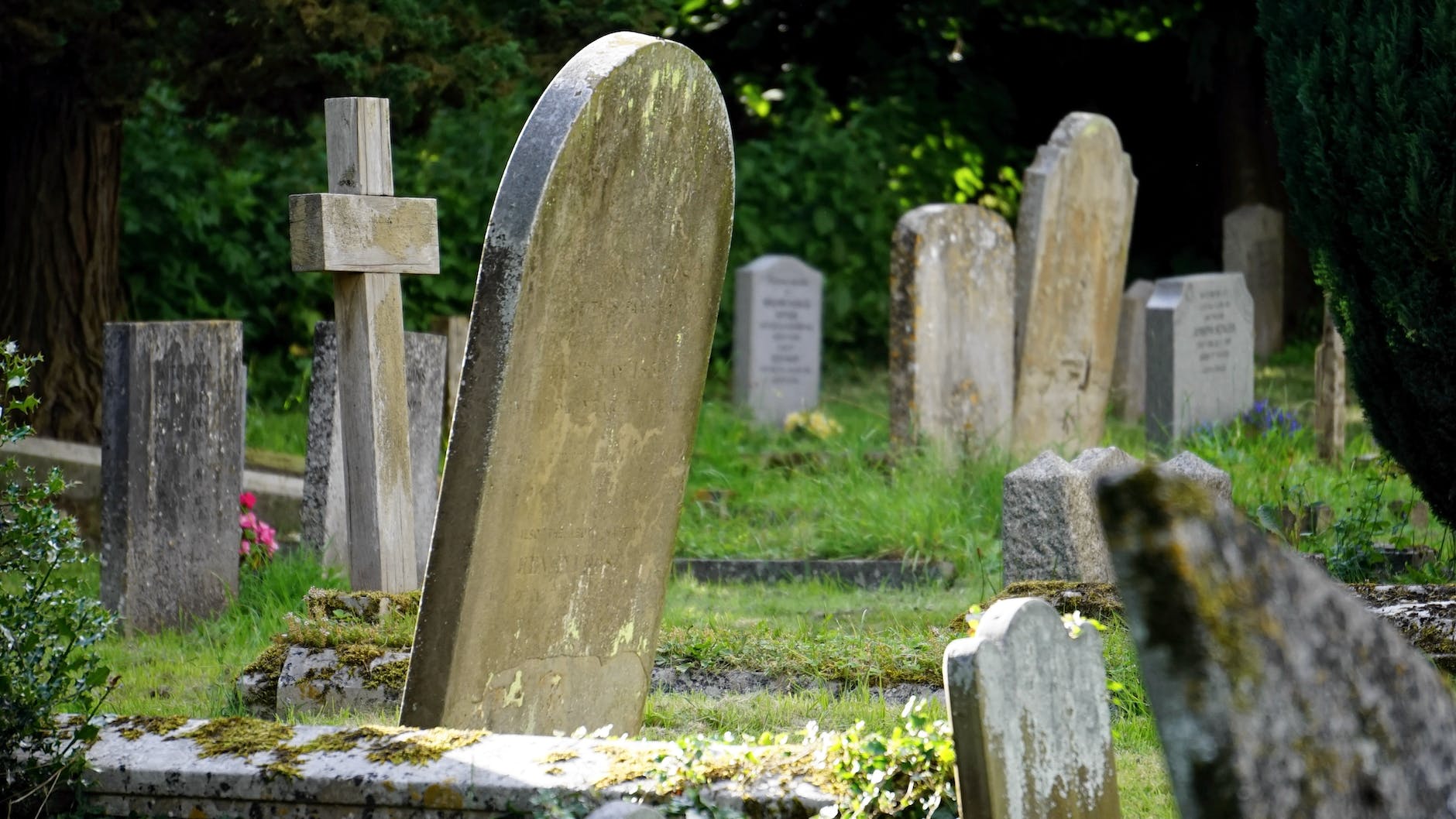Death, Thou Shalt Die
“A family of five died in an auto crash after a faulty vehicle veered off its lane to crush them.”
“A young woman died during childbirth”
“A young medical student died after a brief illness”
Though death is all around us, there are times when it brings a special feeling of sadness and grief. It might be the death of friends, family, or acquaintances. Sometimes it is the ugly circumstances in which it happens. At other times, it might be its incessant nature that leaves a big impression on us.
Whatever it is, there are times when death stops us in our tracks, crushes our souls, and then forces us to think about life itself even as the realisation dawns on us again that it will one day be our turn.
Having had all these feelings in the past weeks, I have found the Christian hope to be a source of comfort and succour. In essence, the Christian faith teaches us that death itself will die. And while this knowledge does not entirely remove the sadness and grief, it ameliorates it with hope, comfort, and even joy.
In what follows, I offer some reflections on this Christian hope – that death itself will die.

The sting of death is sin
The first thing to say is that human death is unnatural. According to Paul, death is the wages of sin (Romans 6:23) or as he put it somewhere else, “the sting of death is sin” (1 Corinthians 15:56).
More specifically, death is the consequence of Adam’s sin. When Adam disobeyed God in the garden, he acted as our federal head; and when God cursed him with death, we all partake of that curse. As Paul puts it, “death came through a man. For as in Adam all die” (I Corinthians 15:21-22). Said differently, “Therefore, just as sin entered the world through one man, and death through sin, and in this way death came to all people, because all sinned’ (Romans 5:12).
Nothing in the above paragraph absolves us of any blame. First, we all sinned in Adam as he was (is, for those who are not in Christ) our federal head. Second, we all sin individually in the now and here and, as God said through Ezekiel, the soul that sins shall die (Ezekiel 18:20-24).
The point here is that death is a result of the fact that there is sin in the world – Adam’s original sin and our sins. “Death itself is nothing other than God’s insistence that human hubris will go so far and no farther,” according to D.A Carson. “It is God’s judicial response to our warped rebellion.”[1]
Of course, this does not mean that every single death is a direct result of a particular sin – he was involved in the accident because he lied in the morning; she lost her life after a brief illness because of the particular watch she stole yesterday. Though death can be an immediate judgment from God for particular sins (John 8:24, Matthew 23:33-36, Acts 5:1-11, 12:19-24, 1 Corinthians 11:27-32), we cannot always know when this is the reality.
Therefore, it is safer, given our limited knowledge, to say that every death is a result of the fact of sin in general rather than saying confidently that this death is the consequence of this sin.
So, when we weep and mourn over the reality of death, we should remember to mourn over its root cause – sin. As John Calvin advised, when we experience the “miseries of the present life,” which includes death, we “should weep over our sins, and seek that relief from the grace of Christ which may not only assuage the bitterness of grief, but mingle its own sweetnes with it.”[2]
Death is an enemy
Because death is the road to the intermediate state (2 Corinthians 5:1-11, Philippians 1:20-26, Luke 23:42-43), many Christians tend to see death as a good thing – as the way to life.
However, while this is true, Paul also says that death is an enemy: “the last enemy to be destroyed is death” (1 Corinthians 15:26). As Carson noted, “Death is such an ugly enemy. It generates endless and incalculable anguish. And for anyone steeped in the entire biblical heritage, death itself is a mark of sin.”[3]
Since death is an enemy, we see that the popular reaction to it is sorrow and anguish. Elijah saw the death of the son of the widow at Zarephath as a “tragedy” (1 Kings 17:20). The members of the church at Lydda cried at the death of Dorcas (Acts 9:36-44) just as the people were “wailing and mourning” when the daughter of Jarius died (Luke 8:52). And when a widow lost her only son, Jesus’ “heart went out to her” (Luke 7:13).
In John 11, we see the range of emotions that Jesus showed at the house of Lazarus. First, John tells us that when he saw the tears of Mary and the other mourners, he was “deeply moved in spirit and troubled.” According to Carson, this should be translated as “he was outraged” [4] And the HCSB version agrees: “When Jesus saw her crying, and the Jews who had come with her crying, He was angry in His spirit and deeply moved.” Second, “Jesus wept” (John 11:35).
Commenting on these two emotions, Carson wrote that “there is a compassion in those tears, but there is also outrage. Jesus is outraged not because he has lost a friend but because of death itself … Every time there is death, it still hurts. It is still painful. It is still ugly. And it is still the result of sin. This was not the way God made the creation in the first place. Jesus is outraged by the whole thing. He is outraged by the death that has called forth this loss, by the sin that lies behind that, and by the unbelief that characterizes everyone’s response to it. There is outrage, and there is grief.”[5]
In essence, Jesus saw death as an enemy and we are right to follow his steps. Like him, we should be outraged at death; we should weep and be deeply moved when it strikes. Yes, death is the path to life, but it is still an enemy, a result of sin, an intrusion into God’s perfect world.

The death of Death: Anticipation
Because death is unnatural and God’s plan is to restore creation to a perfection that even eclipses the original one, death must die (Revelation 21-22).
We already see anticipations of the death of death in the various resurrections in the Scriptures. Elijah raised the son of the widow (1 Kings 17:17-24); Elisha raised the son of the woman of Shunem (2 Kings 4:32-37); Jesus raised Lazarus (John 11), the daughter of Jarius (Luke 8:50-56) and the son of the widow of Nain (Luke 7:11-17); Peter raised Tabitha (Acts 9:36-42); Paul raised Eutychus in Troas; many dead people came to life when Jesus died (Matthew 27:50-53).
Though all of these people still died at some point in time, their resurrections were early indication that death could be defeated. In these cases, the grip of death was loosened and it could not restore its grip for another number of years. Though temporary, they nurtured a hope that death is not omnipotent.
The death of Death: Inauguration
Jesus came to save his people from their sins (Matthew 1:21). With him, sin was to lose its twin power – guilt and slavery (Luke 1:77, Romans 6:14).
Since sin is the sting of death and the source of its power, Christ’s victory over sin would be the death of death as well. “The reason that death can be defeated – and was defeated in principle when Jesus rose again – is that on the cross Jesus dealt with sins,” said N.T Wright. [6]
When Jesus died on the cross, that was the most powerful manifestation of death’s power; death was at its best on that cross of Calvary. However, that powerful showing of death was also its undoing, for, on the third day, Christ rose up again.
But this was not another resurrection that was to end in death – a temporary loosening of the power of death – this was the fulfilment of all the other anticipations – Christ rose with a glorious body that will never die. With that body, he ascended into heaven (Acts 1:9), where he seated (and still seats) at the right hand of the Father (Hebrews 1:3) as the sovereign ruler of the universe (Ephesians 1:22). As N.T Wright puts it, “his resurrection … meant that the darkest and strongest power in the world, the power of death itself, had been defeated.”[7]
Death is part of the subjects upon which Christ now rules. As John said, Christ holds the keys of death and hades (Revelation 1:18). He is the Lord of both the living and the dead (Romans 14:9), or, as he described himself, he is “the resurrection and the life” (John 11:25). By death, Christ has defeated death as well as the devil who uses the fear of death to enslave humanity (Hebrews 2:14-15). As we read in 2 Timothy 1:10, Jesus Christ “has destroyed death and has brought life and immortality to light through the gospel.”

The death of Death: Consummation
If Jesus has destroyed death why do we still die?
The Bible tells us that the death and resurrection of Christ inaugurated the kingdom of God through the defeat of sin, death, and Satan but that kingdom has not yet been consummated.
We currently experience the reality of that death of death in two ways. First, as Hebrews 2:14-15 says, Satan can no longer oppress and enslave us with the fear of death since we know that Christ now holds the key of death and Hades. Second, death has become the path to the intermediate state. To be absent from our body (when we die), is to be present with the Lord (2 Corinthians 5:1-11, Philippians 1:20-26, Luke 23:42-43).
However, the intermediate state is not the consummation of Christian hope or the victory of Christ over death. The ultimate death of death will occur when Jesus comes again and believers are resurrected with a glorious body that will inhabit the new heaven and the new earth. “When they did speak of heaven as a postmortem destination, they seemed to regard this heavenly life as a temporary stage on the way to the eventual resurrection of the body,” according to N.T Wright. [8]
Jesus’ resurrection is the firstfruits and all those who fall asleep in Christ will be resurrected as he was, as the full harvest that the firstfruits was looking ahead to (1 Corinthians 15:20-28). Our dead body will be raised immortal, imperishable, in glory, in power, as a spiritual (Spirit-wrought) body (1 Corinthians 15:35-50).
It is when the mortal has been clothed with immortality that the saying will finally come true that “death has been swallowed up in victory” (1 Corinthians 15:54). Then we will ask, “Where, O death, is your victory? Where, O death, is your sting?” The victory and sting of death will be gone for death itself will die in the lake of fire and sin will be forever destroyed (Revelation 20:14, 21:8).
This resurrection from the dead (and consequent entrance into the New Jerusalem) is the ultimate hope of the believer, the consummation of the victory over death Christ won by his death and resurrection (Revelation 21:1-4). We will live forever in resurrected, immortal, imperishable bodies in the presence of the triune God, with death dead in the lake of fire, and all the anguish of death forever gone.
“‘He will wipe every tear from their eyes. There will be no more death’ or mourning or crying or pain, for the old order of things has passed away” (Revelation 21:4).

Mourning but not like unbelievers
While we await the intermediate state and, ultimately, the resurrection of the dead, we continue to contend with the (defeated) power of death in this life. Death is like sin and the Satan who, though defeated foes, continue to fight hard; therefore, death still fills us with anguish and sadness.
As we have seen, the Bible does not expect us to confront death with a stoic attitude that refuses to mourn or cry over this great (defeated) enemy. We must grieve but we must not grieve “like the rest of mankind, who have no hope” (1 Thessalonians 4:14). The hope of resurrection, the consummation of death’s death, at the second coming of Christ should temper our sorrow and anguish (1 Thessalonians 4:14-18).
“Thus when we come to grips with these things, there needs to be both outrage and pain on the one hand and trust and quiet confidence on the other,” said Carson. “The appropriate mingling of these things together is part of a genuinely Christian response to the ugliness, shock, terror, and loss of death. We begin to understand, and we sorrow, but not as those who have no hope.”[9]
Or as Calvin said, when we experience the sorrows of this world, we are to “seek that relief from the grace of Christ which may not only assuage the bitterness of grief, but mingle its own sweetnes with it.”[10] When we face the awful reality of death, the reality of Christ’s victory (its anticipations, inauguration, and consummation) should assuage the bitterness of grief and mingle sweetness with it.
Like Paul, this hope should continue to renew us inwardly even as we wait for our outward renewal in the resurrection (2 Corinthians 4:16-18). We should keep fixing our eyes on what is yet unseen to the point where, like Moses, what is ahead becomes more real to us than what is currently present and what is invisible than what is visible (Hebrews 11:24-28).
Death, be not proud, though some have called thee
Mighty and dreadful, for thou art not so;
For those whom thou think’st thou dost overthrow
Die not, poor Death, nor yet canst thou kill me.
From rest and sleep, which but thy pictures be,
Much pleasure; then from thee much more must flow,
And soonest our best men with thee do go,
Rest of their bones, and soul’s delivery.
Thou art slave to fate, chance, kings, and desperate men,
And dost with poison, war, and sickness dwell,
And poppy or charms can make us sleep as well
And better than thy stroke; why swell’st thou then?
One short sleep past, we wake eternally
And death shall be no more; Death, thou shalt die.[11]
Footnotes
[1] D.A. Carson, Scandalous (Nottingham: InterVarsity Press, 2010), Page 132.
[2] John Calvin, Genesis (Pennsylvania: Banner of Truth, 2000), Page 177.
[3] Carson, Scandalous, Page 132.
[4] Ibid, 131.
[5] Ibid, 132-133.
[6] N.T Wright, The Day the Revolution Began (London; SPCK, 2016), Page 248.
[7] Ibid, 355.
[8] N.T Wright, Surprised by Hope (London: Harper Collins, 2008), Page 67.
[9] Carson, Scandalous, 133-134.
[10] Calvin, Genesis, 177.
[11] John Donne, Death, be not proud. Available at: Holy Sonnets: Death, be not proud by John Donne | Poetry Foundation


